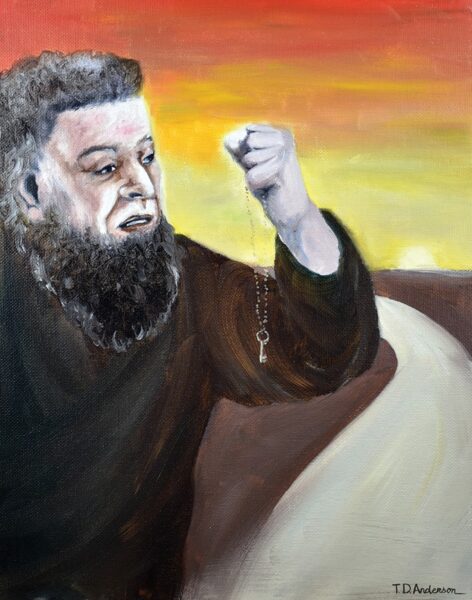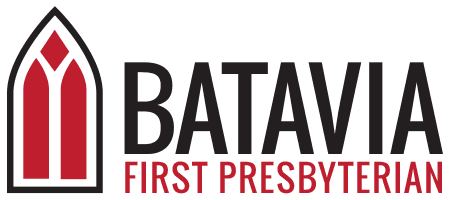Weekly Bible Devotional
“Close to Home: A Home for All”
December 17, 2023
Theme connections:
John the Baptist’s good news sounds harsh, but he preaches a home for all—where inequities are banished, valleys are lifted up, and all have the resources they need for collective flourishing. Ultimately, John’s message is one of joy. We are called to collectively build and repair the structures of our society; we are called to be kin-dom builders. Wherever we build, God is there. What we build should be a place with a large table and room for all.
Scripture: Luke 1:1-18
In the fifteenth year of the reign of Emperor Tiberius, when Pontius Pilate was governor of Judea, and Herod was ruler of Galilee, and his brother Philip ruler of the region of Ituraea and Trachonitis, and Lysanias ruler of Abilene, 2 during the high-priesthood of Annas and Caiaphas, the word of God came to John son of Zechariah in the wilderness. 3 He went into all the region around the Jordan, proclaiming a baptism of repentance for the forgiveness of sins, 4 as it is written in the book of the words of the prophet Isaiah,
‘The voice of one crying out in the wilderness:
“Prepare the way of the Lord,
make his paths straight.
5 Every valley shall be filled,
and every mountain and hill shall be made low,
and the crooked shall be made straight,
and the rough ways made smooth;
6 and all flesh shall see the salvation of God.”’
7 John said to the crowds that came out to be baptized by him, ‘You brood of vipers! Who warned you to flee from the wrath to come? 8 Bear fruits worthy of repentance. Do not begin to say to yourselves, “We have Abraham as our ancestor”; for I tell you, God is able from these stones to raise up children to Abraham. 9 Even now the axe is lying at the root of the trees; every tree therefore that does not bear good fruit is cut down and thrown into the fire.’
10 And the crowds asked him, ‘What then should we do?’ 11 In reply he said to them, ‘Whoever has two coats must share with anyone who has none; and whoever has food must do likewise.’ 12 Even tax-collectors came to be baptized, and they asked him, ‘Teacher, what should we do?’ 13 He said to them, ‘Collect no more than the amount prescribed for you.’ 14 Soldiers also asked him, ‘And we, what should we do?’ He said to them, ‘Do not extort money from anyone by threats or false accusation, and be satisfied with your wages.’
15 As the people were filled with expectation, and all were questioning in their hearts concerning John, whether he might be the Messiah, 16 John answered all of them by saying, ‘I baptize you with water; but one who is more powerful than I is coming; I am not worthy to untie the thong of his sandals. He will baptize you with the Holy Spirit and fire. 17 His winnowing-fork is in his hand, to clear his threshing-floor and to gather the wheat into his granary; but the chaff he will burn with unquenchable fire.’
Commentary on Luke 3:1-18 | by Elder Vilmarie Cintrón-Olivieri
“No te duermas en los laureles.”
The scripture for this week focuses on John’s prophetic message. Though his words might sound harsh (“You brood of vipers!” (v. 7)), it is a message of good news—of change, forgiveness, and justice—to a suffering people. God called John for a specific place and time (v. 1-4), and his cry from the wilderness, as written in Isaiah, proclaimed leveled valleys and righted wrongs. This was, and is, a message of joy, especially for those who had lost hope, hurt by the inequities and injustices perpetrated by the empire and the religious authorities aligned with it. The world as they knew it was about to change. Crowds came to John to be baptized, and he charged them with “bearing fruit worthy of repentance” (v. 8), not relying on past glories, heritage, or lineage, but producing their own fruit, living and acting in ways that demonstrated true change.
Resting on their laurels for far too long, the crowd wasn’t quite sure how to do that, and John offers words of wisdom. Instead of accumulating, share with others what you have. Instead of being indifferent or selfish, show consideration and compassion. Instead of taking advantage and preying on the vulnerable, be satisfied with what you have and treat others fairly and with dignity. . . even if you work for the empire (v. 12-14).
What implications does John’s message have for us kin-dom builders today? If “all flesh shall see the salvation of God” (v. 6), we all have a part to play in the salvation story, in leveling valleys and righting wrongs. Like John, we are also called for a specific place and time: Here and now. Be at the ready, no te duermas en los laurels (don’t rest on your laurels), and bear fruit worthy of repentance, clothing the naked, feeding the hungry, giving voice to the silenced and oppressed, speaking truth to power, and protecting and empowering the vulnerable. Let our collective voice cry out in the wilderness—and everywhere—with exhortations and good news. And, as the message is heard, more and more people will join us in building the kin-dom of God, making it truly a home for all.
Guiding Q’s
– When the crowds ask John how to bear the fruit of true transformation, his directions are concrete and practical: Building a home for all requires sharing resources, especially when we have more than we need. It requires establishing relationships of trust, not manipulation or deceit. Building a home for all is an economic endeavor, requiring faithful stewardship and contentment for what you have. John’s message reads like house rules—it is good news to be able to care for one another and be in right relationship. In your church and larger community, where do you see these “house rules” maintained, leading to collective flourishing? Where do you see them being broken or ignored?
– Research the organizations in your city working to end homelessness. What models and efforts align most with John the Baptist’s message and prophecy? What stories illustrate Isaiah’s vision of valleys lifted, mountains made low, and the rough ways made smooth?
– In her artist statement for “Gather Us In,” Rev. Lisle Gwynn Garrity writes, “Perhaps the path toward creating a home for all requires some deconstruction. Some of our structures are rotting. Some of our institutions are compromised. Some of our rituals need repair. And yet, nothing is beyond redemption. Collective belonging gives way for collective joy—joy that is free and full.” What particular structures, systems, or rituals need to be deconstructed? What systems is God rebuilding and redeeming?
From Pastor Roula Alkhouri:
This week we look at a prophet from the Bible who took to heart the suffering of others and worked hard to call others to compassion and care. Part of the challenge for him and for his people was how normal suffering and exploitation were. People just accepted the conditions of suffering around them. But not John the Baptizer, the cousin of Jesus, who prepared the way for the ministry of Jesus. John was captured by a divine vision of justice in the world. His life in the wilderness allowed God’s grace to shape his dreams for his community. Prophets in the biblical traditions are not people who predict the future. Instead, they are people who see the present moment through God’s eyes and speak God’s vision into the world. They are not fortunetellers. They are instead divine vision and truth tellers. That is what is often missing from our world. Biblical scholar Walter Brueggemann once wrote a whole book about the importance of the prophetic imagination through which we can imagine the world through God’s eyes. Bruegemann wrote, “The prophet engages in futuring fantasy. The prophet does not ask if the vision can be implemented, for questions of implementation are of no consequence until the vision can be imagined. The imagination must come before the implementation. Our culture is competent to implement almost anything and to imagine almost nothing. The same royal consciousness that makes it possible to implement anything and everything is the one that shrinks imagination because imagination is a danger. Thus, every totalitarian regime is frightened of the artist. It is the vocation of the prophet to keep alive the ministry of imagination, to keep on conjuring and proposing futures alternative to the single one the king wants to urge as the only thinkable one.”
That is why John the Baptizer was seen as a major threat by the leaders of his time. He was moved by compassion and by God’s vision to call others to repent from the ways of injustice and to imagine the world as God has created and continues to create it to be. John knew that people are capable to more love and compassion. But the status quo around him was so strong, as it normally is, that he had to stir things up in order to get the attention of people who were comfortable with reality as it was.
John confronted the powers and principalities of his day: the Roman Empire, the immoral rulers of his region, and the corrupt religious leadership of the temple in Jerusalem. In fact, his ministry was conducted outside the halls of power in the wilderness so that he could be detached from the values of corruption in his day. His words were not gentle because he wanted the people listening to him to pay attention to the grave situation in which they were living. What is amazing is that John’s call to repentance and change was something which the people liked and welcomed in their lives. It rang true in their hearts that they wanted to know what to do.
John had a grand vision for what community would be like and people loved it. They asked him to instruct them on how to implement the vision. He responded with specific suggestions. The first step is being compassionate and caring about the poor (share coats, share food). The second step is to be ethical and just in their daily dealings (don’t collect more money than prescribed). The third step is not to lust for wealth (be satisfied with your wages). These were not radical teachings, but what was radical was that John practiced these teachings himself. He let go of his status of power and privilege as the son of a priest to demonstrate a different way of being. John was interested in justice and equity, practically acted out.
It is also interesting to note that the people who asked John the questions were not known for their high moral standards. Tax collectors were Jews appointed by the Roman Empire to collect the taxes, but they could name their own price, pay the taxes out of what they had collected and legally keep the remainder for themselves. It was rare in those days to hear of an honest tax collector. Soldiers also used their position to intimidate people and to accept bribes. Both professions provided an ideal way to become wealthy at the expense of the people. But even those people who seemed hopeless, were reach and transformed by the good news. And all of this was possible because of the life, ministry, and teachings of one man! And that is why the Gospel writer decided that it was important to share his story as well as Jesus’ story.
When we imagine living close to our home in God, the invitation is to see the potential for all of God’s children to have the opportunity to have a home of peace and justice. Last week in worship we talked about the idea of being a secret Santa of blessing, sharing our blessings with others which recognizes the divine in others. Today, the image of a safe and healthy home is something that extends blessings and compassion to all. We may not have the voice and charisma of John the Baptizer, but in our own ways, we can help others in our lives to tap into their own God’s given gifts of compassion.

From the Artist: A Closer Walk
by Rev. T. Denise Anderson
Inspired by Luke 3:1-18 | Oil on canvas
As I meditated on the theme, Close to Home, I decided that what makes a place “home” for me is people. That realization informed my decision to explore this theme through portraiture—the depiction of people. The references for each of the depictions I’ve painted are actual Palestinians and Israelis. It’s important to me to bring this ancient story truly close to home as we consider the current geopolitical realities in the land of the Advent story. I encourage you to read more about the stories of those who inspired these depictions.
My depiction of John the Baptist is inspired by Abuna (meaning “Father”) Elias Chacour, who was the Archbishop of Akko, Haifa, Nazareth and All Galilee of the Melkite Greek Catholic Church (2006-2014). A Palestinian Arab-Israeli, Abuna Chacour is a well-respected activist and educator who established the Mar Elias Educational Institutions in Ibillin, which educate students of multiple religious backgrounds—Arab and Israeli—from kindergarten through high school. His life’s work embodies the courageous and prophetic pointing to a better way that I also see in John the Baptist.
John’s words in the text are so full of imagery that it’s impossible to fit it all in one image. The shape of his tunic recalls the base of the tree referenced in verse 9. In the background is an obvious path, recalling John’s clear instruction to his listeners. Share your belongings! Do not extort people! His counsel is so simple, yet apparently so hard to follow. The path leads to the sunrise on a new day, the colors of which allude to the fire of Jesus’ baptism. In his hand is a key, which is a symbol that you’ll see in my other works. For Palestinians, the key represents a longing and determination to return home from displacement.
Prayer by Rev. Sarah Speed:
God, whose love is like the sun warming me from the inside,
if you are my home,
then your word is the street light guiding me there.
So I want you to know—
I am walking your way,
we are walking your way,
and we are looking for a light.
And our feet are dirty—
we’ve lost our way a time or two.
And our bags are heavy—
we’re carrying an array of grief and fear on our backs.
But we’re on our way.
We’re looking for your light.
We’re listening for your word.
When you see us coming,
when you feel our hearts move,
we hope you’ll run down the driveway and catch us.
Leave the light on.
We are on our way home.
Gratefully we pray, amen.

